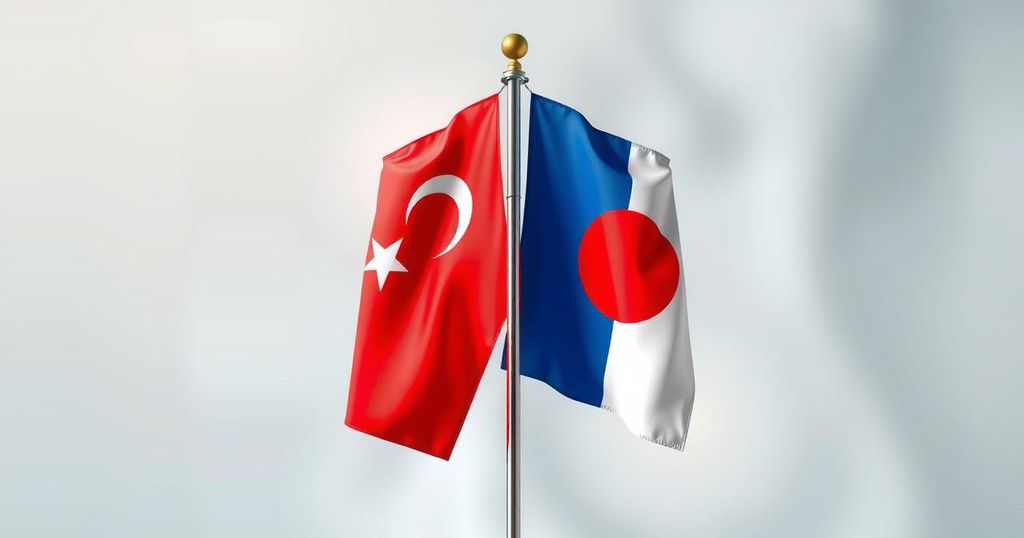World news
AP, ASIA, DIPLOMACY, DONALD TRUMP, ENERGY INFRASTRUCTURE, EUROPE, EUROPE/ASIA, INTERFAX, INTERNATIONAL RELATIONS, KIM, KIM JONG UN, KOREA, NORTH, KOREA, SOUTH, KOREAN CENTRAL NEWS AGENCY, KOREAN PENINSULA, MOSCOW, NORTH KOREA, PYONGYANG, RUSSIA, RUSSIA-NORTH KOREA COOPERATION, RUSSIA-UKRAINE WAR, SECURITY COUNCIL, SEOUL, SHOIGU, SOUTH KOREA, TASS, U. S, UKRAINE, VLADIMIR PUTIN, WAR
Marisol Gonzalez
0 Comments
Russian Official’s Visit to North Korea Highlights Support in Ukraine Conflict
A senior Russian official, Sergei Shoigu, met with North Korean leader Kim Jong Un to express gratitude for North Korea’s support in Ukraine. The two discussed military cooperation and security partnerships, while North Korea’s missile tests were timed with U.S.-South Korean military exercises. Analysts note a potential increase in North Korean military aid to Russia amidst ongoing geopolitical tensions.
On a recent visit to Pyongyang, a senior Russian official, Sergei Shoigu, engaged with North Korean leader Kim Jong Un, expressing gratitude for North Korea’s backing of Russia’s military actions in Ukraine. The meeting follows reports indicating that North Korea has dispatched additional troops to Russia.
During the discussion, Shoigu conveyed a message from President Vladimir Putin, who emphasized the importance of fulfilling prior agreements made during their earlier summits. He acknowledged North Korea’s solidarity on pivotal geopolitical matters, particularly concerning Ukraine.
Shoigu reaffirmed Moscow’s commitment to a security partnership established during last year’s Pyongyang summit, which facilitates mutual support against hostilities. The conversations spanned over two hours, covering topics such as Russia’s ongoing conflict in Ukraine and the security dynamics on the Korean Peninsula, although no new agreements were disclosed.
This engagement followed the recently discussed ceasefire between Ukraine and Russia; however, its enactment remains uncertain. North Korea has reportedly been sending conventional weapons and troops to support Russia.
Furthermore, South Korean and U.S. intelligence has indicated that North Korea might be receiving incentives from Russia in exchange for military support. Analysts suggest that North Korea is likely to intensify its assistance to Russia to extract maximum benefits before the conflict concludes.
Some analysts speculate that Shoigu’s visit could facilitate a potential trip by Kim to Russia, as Putin had invited him during a previous meeting in June 2024. Historical context shows that past interactions between Shoigu and Kim have centered around military cooperation and arms exhibitions.
On the same day as the meeting, North Korea conducted test-launches of advanced anti-aircraft missiles, marking its sixth weapons activity this year. This occurred concurrently with U.S.-South Korean military drills, which North Korea perceives as rehearsals for invasion.
The North Korean Defense Ministry condemned these drills, threatening severe repercussions if similar provocations occur. North Korea frequently issues threats during such military exercises, with South Korean officials cautioning against using these activities as justification for aggression.
Although former President Donald Trump has expressed an interest in reinitiating dialogue with Kim over nuclear disarmament, North Korea has not responded publicly. Experts believe that Kim’s current focus on supporting Russia diminishes the likelihood of renewed diplomatic engagement, although he may reconsider once the war abates.
In summary, the recent meeting between Sergei Shoigu and Kim Jong Un emphasizes the strengthening ties between Russia and North Korea amid the ongoing conflict in Ukraine. The discussions reaffirm mutual support agreements while highlighting North Korea’s military contributions to Russia. Moreover, the surrounding geopolitical tensions, particularly related to U.S.-South Korean military exercises and North Korea’s responses, underscore the complexities of the regional security landscape.
Original Source: www.sooleader.com




Post Comment